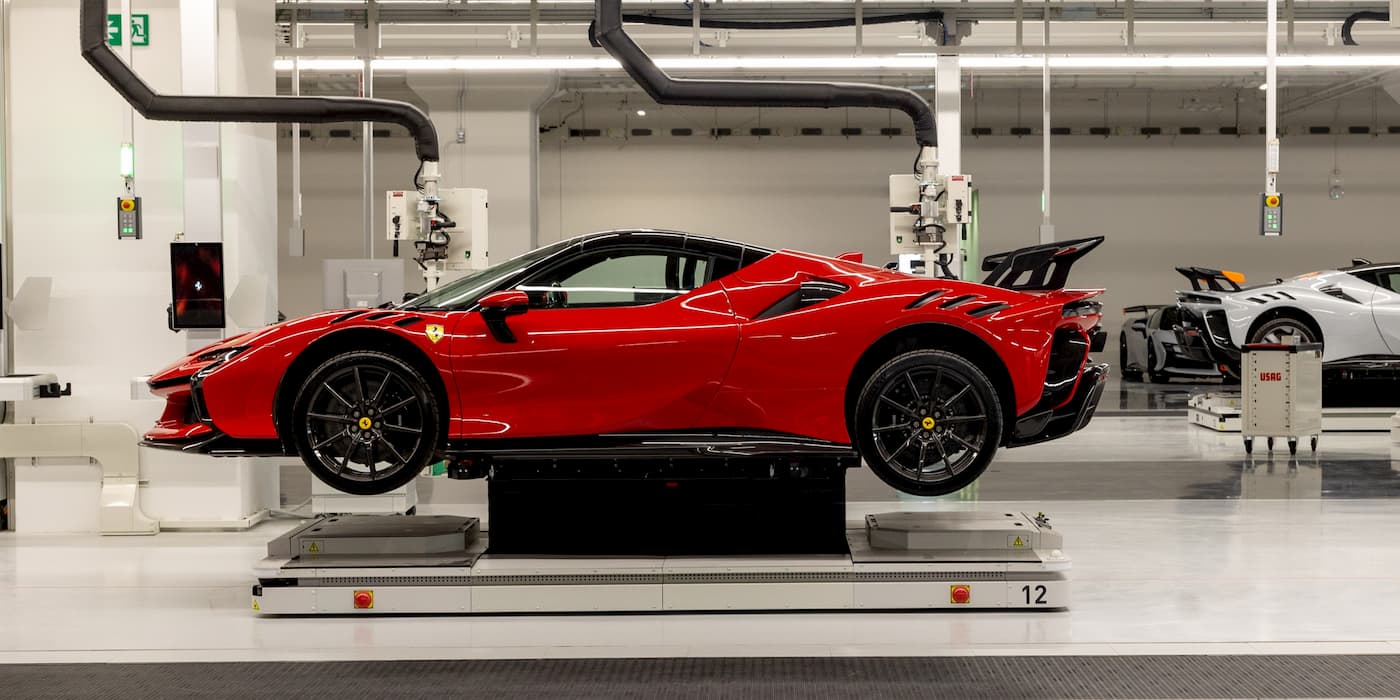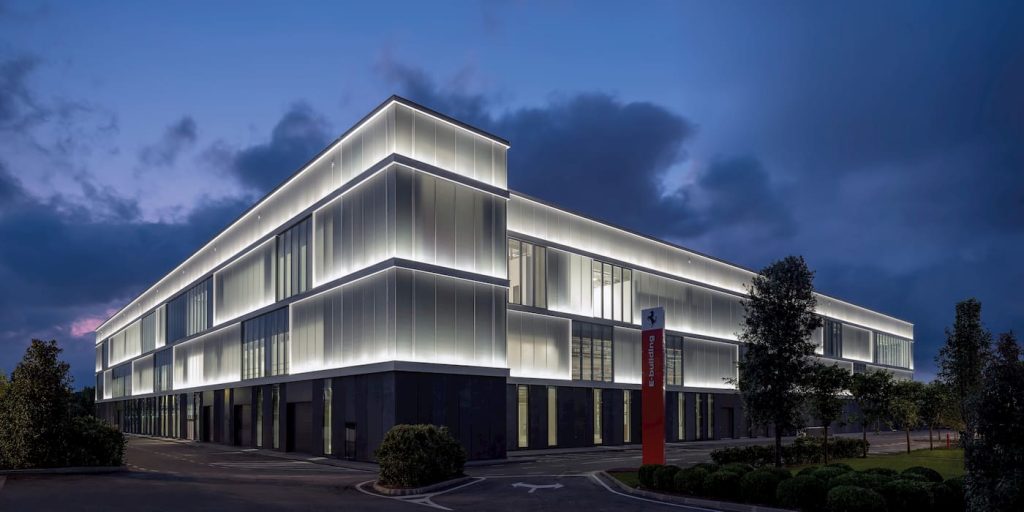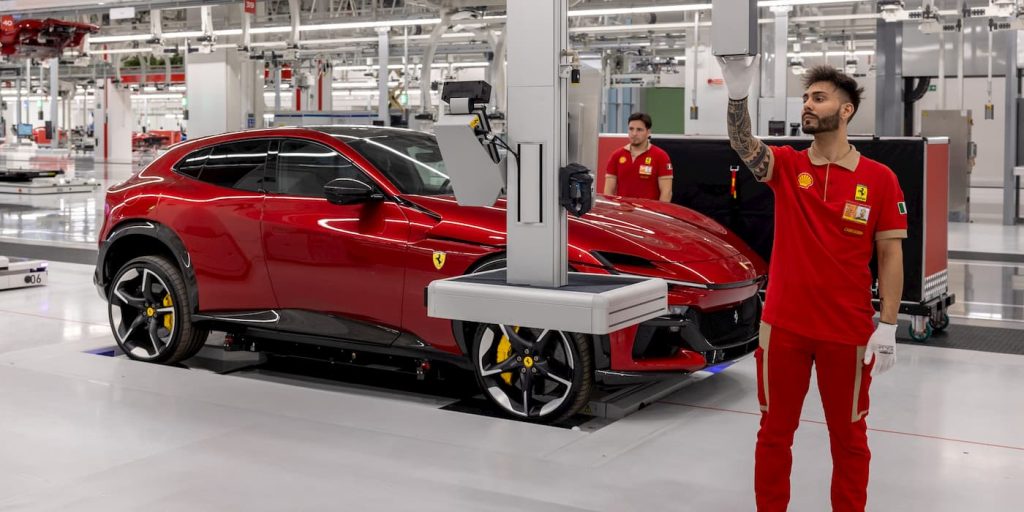
The Italian luxury sports car maker is preparing to launch its first EV. Ferrari’s new e-building opened its doors on Friday with Italian President Sergio Mattarella in attendance. The new plant, entirely powered by renewable energy, is set to launch the first Ferrari EV sports car.
Ferrari’s first fully electric sports car will be built at the new e-building. CEO Benedetto Vigna said the new factory will “light up” Ferrari’s future.
The e-building will enable Ferrari to continue to “audaciously redefine the limits of what’s possible.” Ferrari’s first EV sports car will be built at the facility alongside its next-gen hybrids and ICE vehicles. The facility will also produce batteries, electric motors, and inverters for Ferrari’s EV.
Ferrari has invested roughly $214 million (200 million euros) to make the facility a reality. After opening the doors Friday, Ferrari said the plant will help improve efficiency and flexibility.
The building will be entirely powered by renewable energy. Over 3,000 solar panels on the roof produce 1.3 MW of energy. Ferrari said that by reusing rainwater and energy in the production cycle, 60% of the energy used for battery and motor testing would be recovered and redirected.

Ferrari’s new e-building opens with first EV coming soon
The new inauguration comes after sources told Reuters this week that Ferrari’s first EV sports car will cost at least $535,000 (500,000 euros).
According to the sources, Ferrari is already developing its second electric vehicle. It’s still in its early stages but will be built at the new e-building.

Ferrari launched its first plug-in hybrid last year, the SF90 Stradale, as it electrifies the brand. By 2026, Ferrari aims for EVs and PHEVs to account for 60% of sales.
The first fully electric Ferrari is expected to be revealed by the end of the year. Check back soon for more info.
Meanwhile, luxury rival Lamborghini revealed its first electric car, the Lanzador EV, last August (check out Lamborghini’s first EV here). Lamborghini is expected to launch the Lanzador in 2028.
